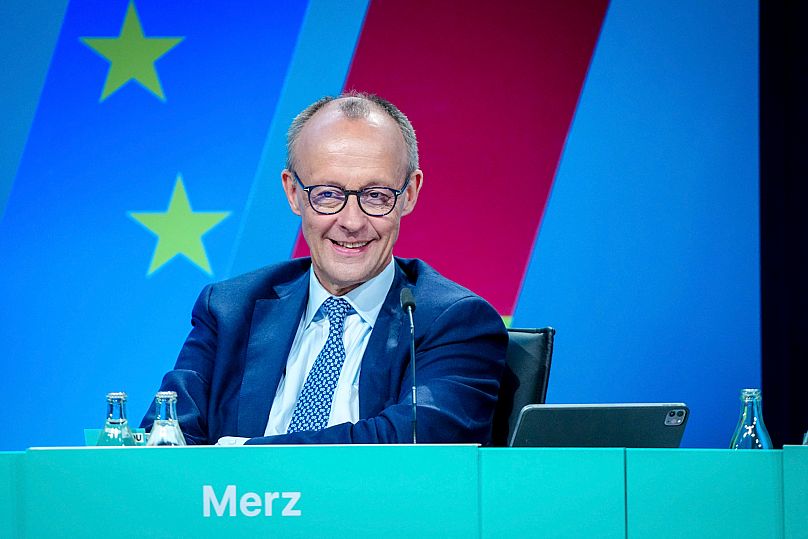German election winner Friedrich Merz’s CDU party has approved an agreement to form a coalition government with its centre-left rival, bringing him closer to the helm of a leading European power as it grapples with a stagnant economy, the Trump administration's trade policy and the war in Ukraine.
Delegates at a convention of Merz's centre-right Christian Democratic Union party approved the agreement that was reached earlier this month.
German news agency dpa reported that the exact vote count has not been released.
The would-be coalition aims to spur economic growth, ramp up defence spending, take a tougher approach to migration and catch up on long-neglected modernisation for the 27-nation European Union’s most populous member.
The deal still has a bigger hurdle to clear before parliament can meet to elect Merz.
The junior partners in the prospective coalition, the centre-left Social Democrats of outgoing Chancellor Olaf Scholz, put the agreement to the ballot of their entire 358,000-plus membership.

The results are expected to be published on Wednesday.
There is some resistance in the Social Democrats’ ranks after the party finished third in Germany’s snap election in February with its worst post-war result in a national parliamentary election.
The party’s youth wing has come out against the deal.
The CDU is the dominant party in a two-party conservative bloc known as the Union. Its Bavarian sister party, the Christian Social Union, already approved the deal.
If the Social Democrats' members approve the deal, the lower house of the German parliament will meet on 6 May to elect Merz as chancellor.
In that vote, Merz will need a majority of all members of the house to be elected as post-World War II Germany’s 10th chancellor, succeeding Scholz.
The proposed coalition has a relatively modest majority, with 328 of the Bundestag's 630 seats.

Merz's party also announced its proposed government team with CDU members proposed for the following posts:
Thorsten Frei - Head of the Federal Chancellery
Dr Johann Wadephul - Federal Minister for Foreign Affairs
Katherina Reiche - Federal Minister for Economic Affairs and Energy
Patrick Schnieder - Federal Minister of Transport
Karin Prien - Federal Minister of Education, Family Affairs, Senior Citizens, Women and Youth
Dr Karsten Wildberger - Federal Minister for Digitalisation and State Modernisation
Nina Warken - Federal Minister of Health
CSU gets three ministerial posts
The CSU, the Bavarian sister party of the CDU, will fill three ministerial posts. CSU leader Markus Söder announced the following names in Munich.
Alexander Dobrindt - Federal Minister of the Interior and Sport
Dorothee Bär - Minister for Research, Technology and Space
Alois Rainer - Minister for Food, Agriculture and Home Affairs







